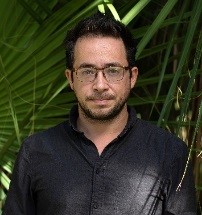I am an entomologist and Research Assistant Scientist at the Florida Medical Entomology Laboratory. I use molecular techniques to investigate applied questions related to the biology and control of mosquito species in Florida and the pathogens that they transmit. The focus of my program is the development of new tools for vector and pathogen surveillance, detection, and identification through the current molecular technologies, and understanding the biology of Florida’s mosquito species for the benefit of mosquito control.
Mosquitoes occupy a unique ecological position. They interact directly with a broad subset of the biodiversity within the ecosystems they inhabit: most notably, their host animals and diverse pathogens, but also organisms that are predators of mosquito larvae and adults, and plants that provide larval habitats or adult nectar sources. Understanding how mosquitoes interact with other species and with the environment provides guidance critical to developing effective strategies and priorities for controlling mosquitoes and the pathogens they transmit.
I am interested in mosquito diversity. More than 80 mosquito species occur in Florida, and new introductions of non-native species are increasingly common. The biological and ecological details of mosquitoes vary from species to species. My research program uses DNA sequences to characterize interactions between mosquitoes and other organisms, and the environment in Florida with the goal of translating these details of mosquito biology to improved strategies of mosquito control in the state. Current molecular techniques, such as DNA barcoding and metabarcoding, can be directly applied to mosquito surveillance objectives to, for example, rapidly assess the species diversity of mosquitoes and non-target insects in bulk trap samples, detect the presence and identify mosquito DNA in environmental samples, or taxonomically identify non-native mosquitoes, among others. Similarly, such techniques can be employed to measure interactions between mosquitoes and their predators. A primary goal of my research is the development and application of environmental DNA and metabarcoding approaches to mosquito and pathogen surveillance that take advantage of current molecular technologies and novel methods of biodiversity assessment.


.jpg)